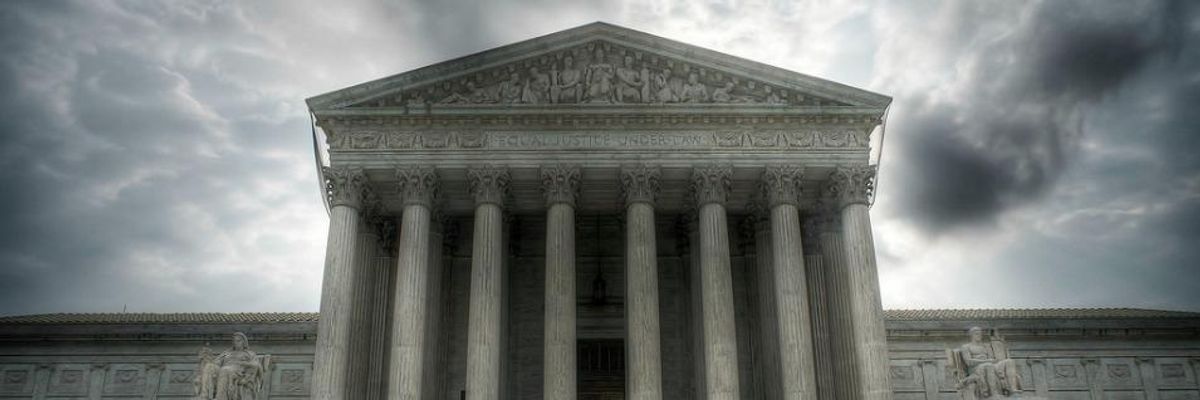A 2013 Supreme Court decision that makes it much harder to sue foreign companies for human rights abuses is now being used by U.S. corporations to dodge culpability, a new Reutersanalysis reveals.
Last year's ruling in Kiobel v. Royal Dutch Petroleum tossed out a lawsuit levied by Nigerian citizens against oil giant Shell for its role in pervasive human rights abuses--including torture, rape, and extrajudicial killings--against the Ogani people in the 1990s.
The plaintiffs invoked the Alien Tort Statute--a law that dates to the 18th century and "gives federal courts the power to hear suits by aliens for torts 'committed in violation of the law of nations,'" according to a synopsis by the Center for Constitutional Rights.
The court acquiesced to Shell's argument, ruling that in such a case, where a foreign corporation is accused of acts abroad, the court does not have jurisdiction.
The ruling was a blow to human rights litigation, because for over three decades, the Tort Statute had been a key tool for levying charges against multinational corporations, as well as military and civilian individuals, for a host of abuses--from police torture in Paraguay to the oil company Unocal's oppression of Burmese villagers.
Now, as Reuters journalist Lawrence Hurley explains in his new analysis, the ruling is having a chilling effect that goes far beyond limiting lawsuits against foreign corporations. Hurley explains:
In the roughly year and a half since the ruling in Kiobel v. Royal Dutch Petroleum Co, U.S. companies such as Chiquita Brands International Inc, IBM Corp and Ford Motor Co have successfully invoked the Supreme Court's reasoning to fend off lawsuits alleging they were involved in human rights abuses in South Africa, Colombia and elsewhere.
In the seven cases involving U.S. companies that federal appeals courts have decided since the Supreme Court rulings, corporate defendants have won five, according to a Reuters review of the court documents. Only one ruling was an outright win for plaintiffs.
A similar pattern has played out in lower courts, with judges citing the Kiobel decision in favor of defendants in seven of eight human rights cases involving U.S. companies that have been decided since the ruling
With rulings tending to favor companies, human rights lawyers are thinking twice before filing new lawsuits. The Reuters review shows only one new human rights lawsuit filed against a U.S. company since the ruling came down in April 2013. In the 1990s and 2000s, up to half a dozen cases were filed every year against U.S. or foreign corporations.
However, human rights lawsuits under the Tort Statute are not completely dead.
Center for Constitutional Rights lawyers are currently invoking the statute in a federal suit brought by four Iraqi victims of torture against the U.S. company CACI for its role in war crimes and torture at Abu Ghraib prison in Iraq.
CCR lawyers are also invoking the statute in a federal suit on behalf of Sexual Minorities in Uganda against Abiding Truth Ministries President Scott Lively--a U.S. citizen--for his attack LGBTQ rights in Uganda.
In the immediate wake of the Kiobel ruling last year, Pamela Merchant, Executive Director of the Center for Justice and Accountability, declared, "In spite of the Court's decision, the human rights community will continue our work to ensure that U.S. courts give victims what they were denied abroad: a chance to seek truth, healing, and a measure of redress."
